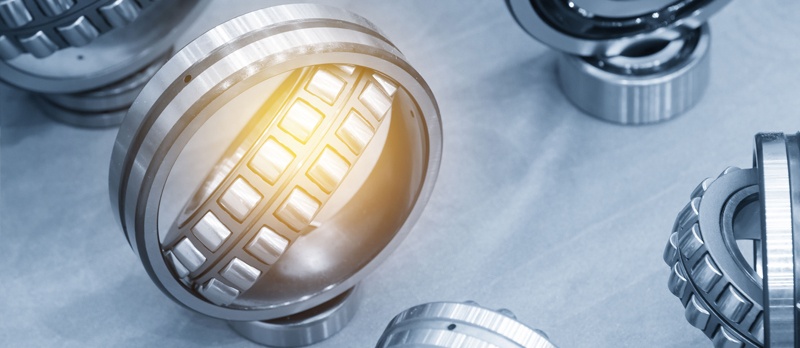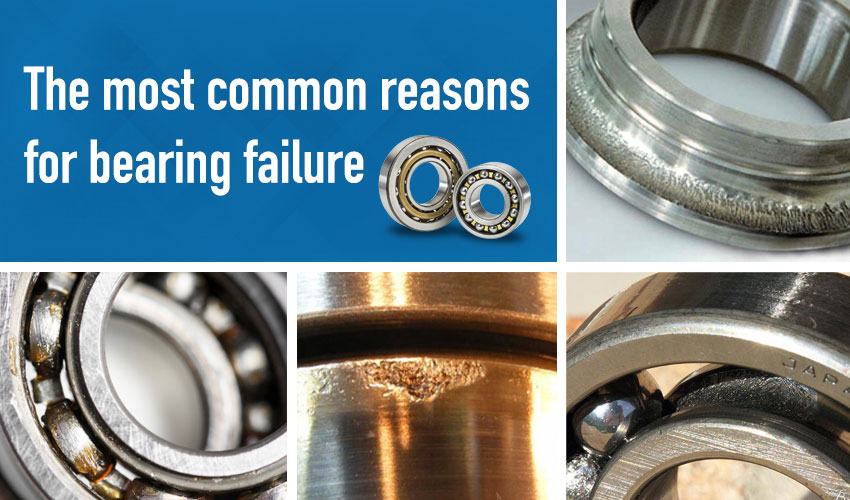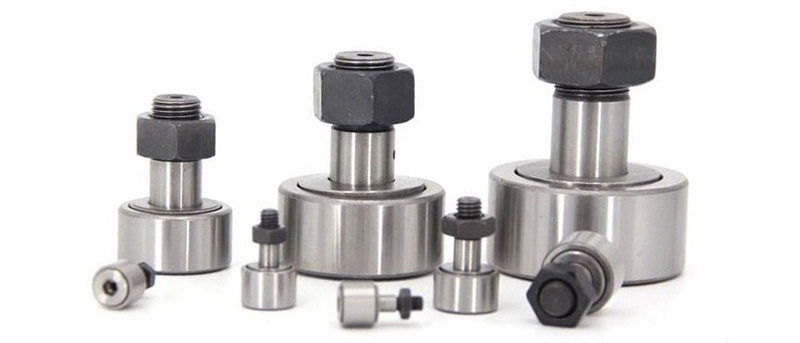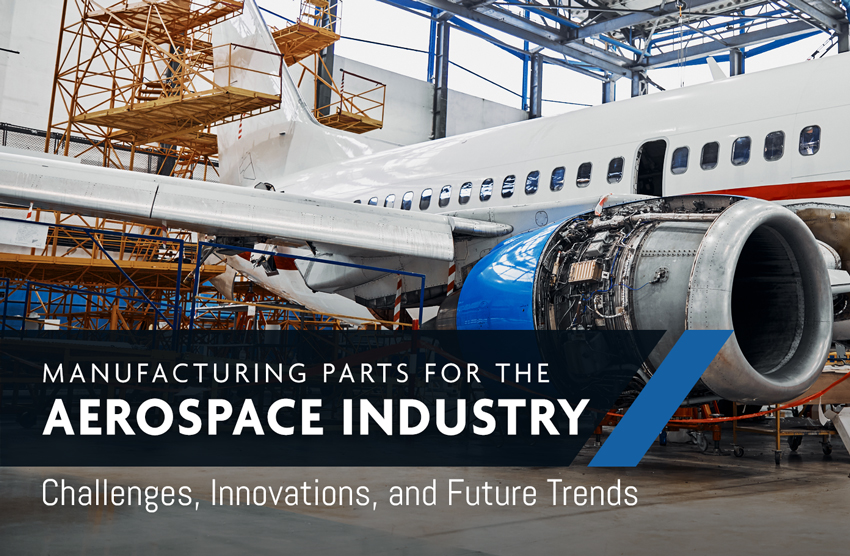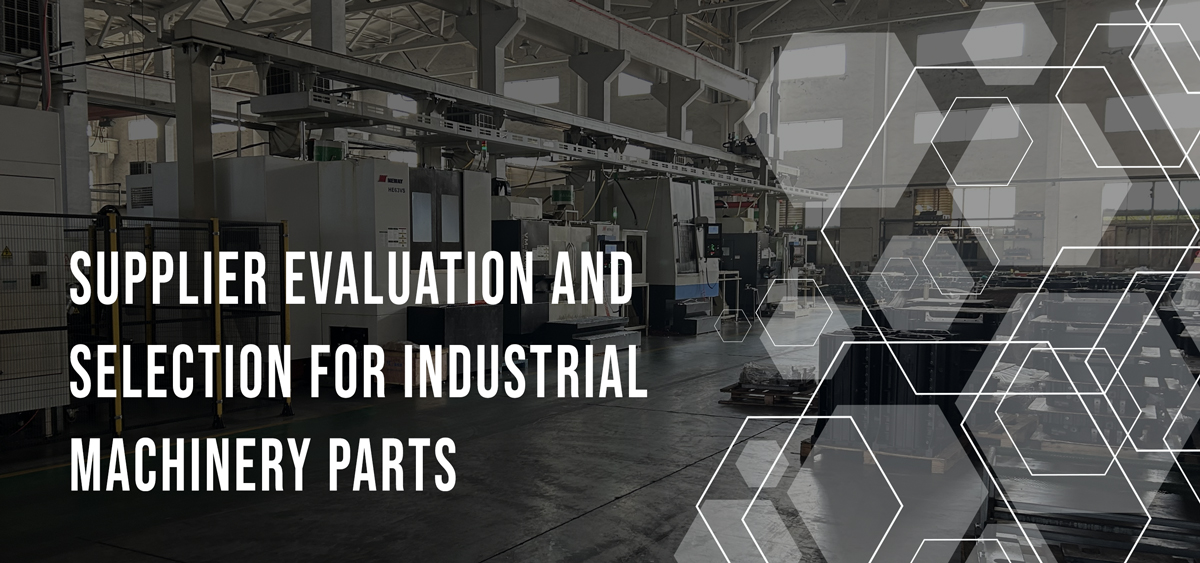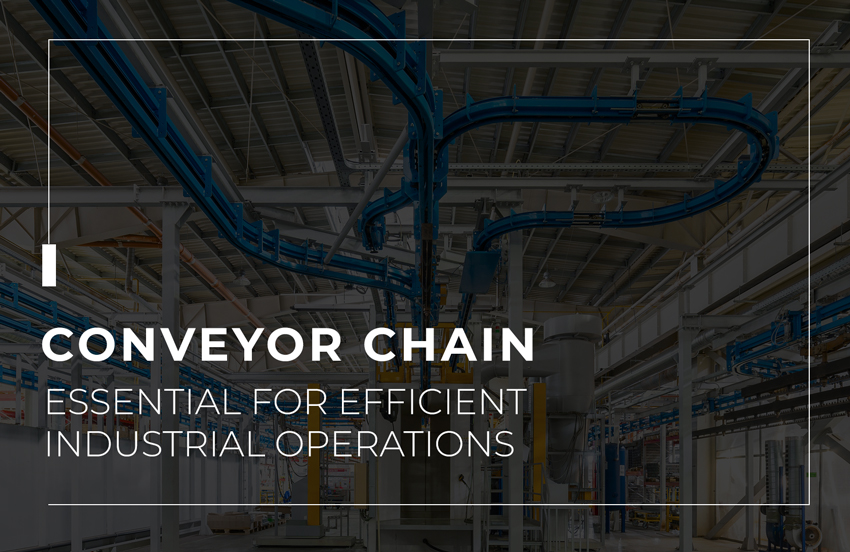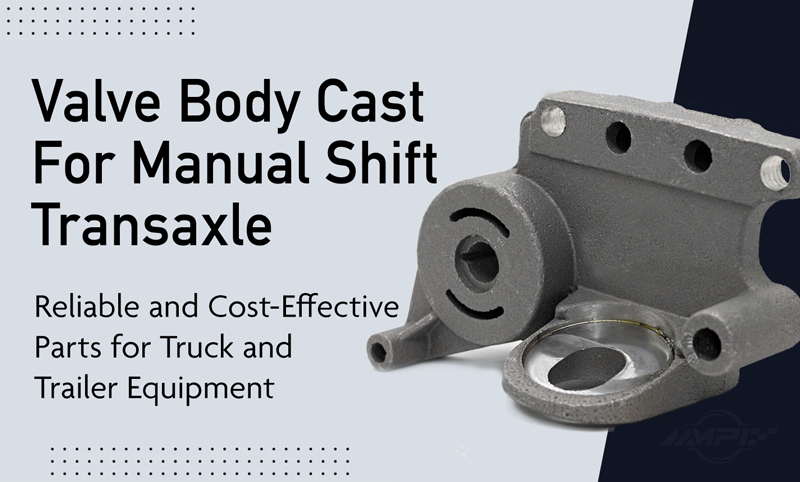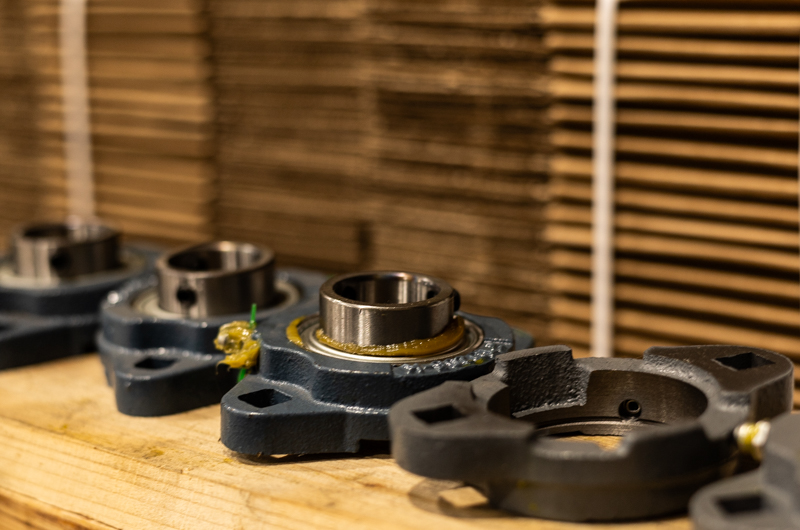Damaged Bearings
There are numerous reasons bearings can fail, including: rust, overheating, wear, and fracturing. Improper lubrication causes 20% to 30% of bearing failures. Most of these issues can be avoided through correct lubrication process.
Common Causes of Bearing Failure
Lubricant
If the wrong lubricant is used for an application, including not being sufficiently durable for the operating conditions, it can contribute to bearing failure. A good lubricant can help prevent rust, reduce friction, and support optimal performance.
Dirt and Contamination
Lubricants can get contaminated by water, chemicals, or residue, as a result they perform less effectively in a bearing component. To avoid contamination, ensure regular maintenance of equipment is performed.
Oil Viscosity
Many engine bearing failures are caused by oil that is too heavy in viscosity. During cold temperatures, a heavy-weight oil will not flow or pump properly. When flow is limited, engine bearings become starved for lubrication and fail. To avoid failures, good-quality multi-viscosity engine oils have been developed to include “flowability” for low temperatures.
Conclusion
Bearing failure can lead to significant downtime and costly repairs for machinery. It is important to prevent bearing failure to ensure the smooth operation of machinery and prevent interruptions to production.
There are several steps that can be taken to prevent bearing failure, including regular maintenance and inspections, proper lubrication, and the use of high-quality bearings.
Regular maintenance and inspections can help identify potential issues early and prevent them from becoming major problems. Proper lubrication is crucial for the proper function of bearings and can help prolong their life. High-quality bearings are less likely to fail and will typically last longer than lower-quality bearings.
Implementing a preventive maintenance program that includes regular inspections, lubrication, and the use of high-quality bearings can help reduce the risk of bearing failure and prolong the life of machinery.
In summary, preventing bearing failure is essential for ensuring smooth operation of machinery, reducing downtime and costly repairs. It can be achieved through regular maintenance and inspections, proper lubrication and by using high-quality bearings.
Contact Mechanical Power bearing experts and learn how to avoid problems related to bearing failures and proper lubrication techniques.

Resourceful and innovative Marketing Pro, with 20+ years of progressive experience in the marketing and creative technology industry. Responsible for digital and traditional marketing efforts that promotes brand awareness, increases engagement, and drives revenue.


